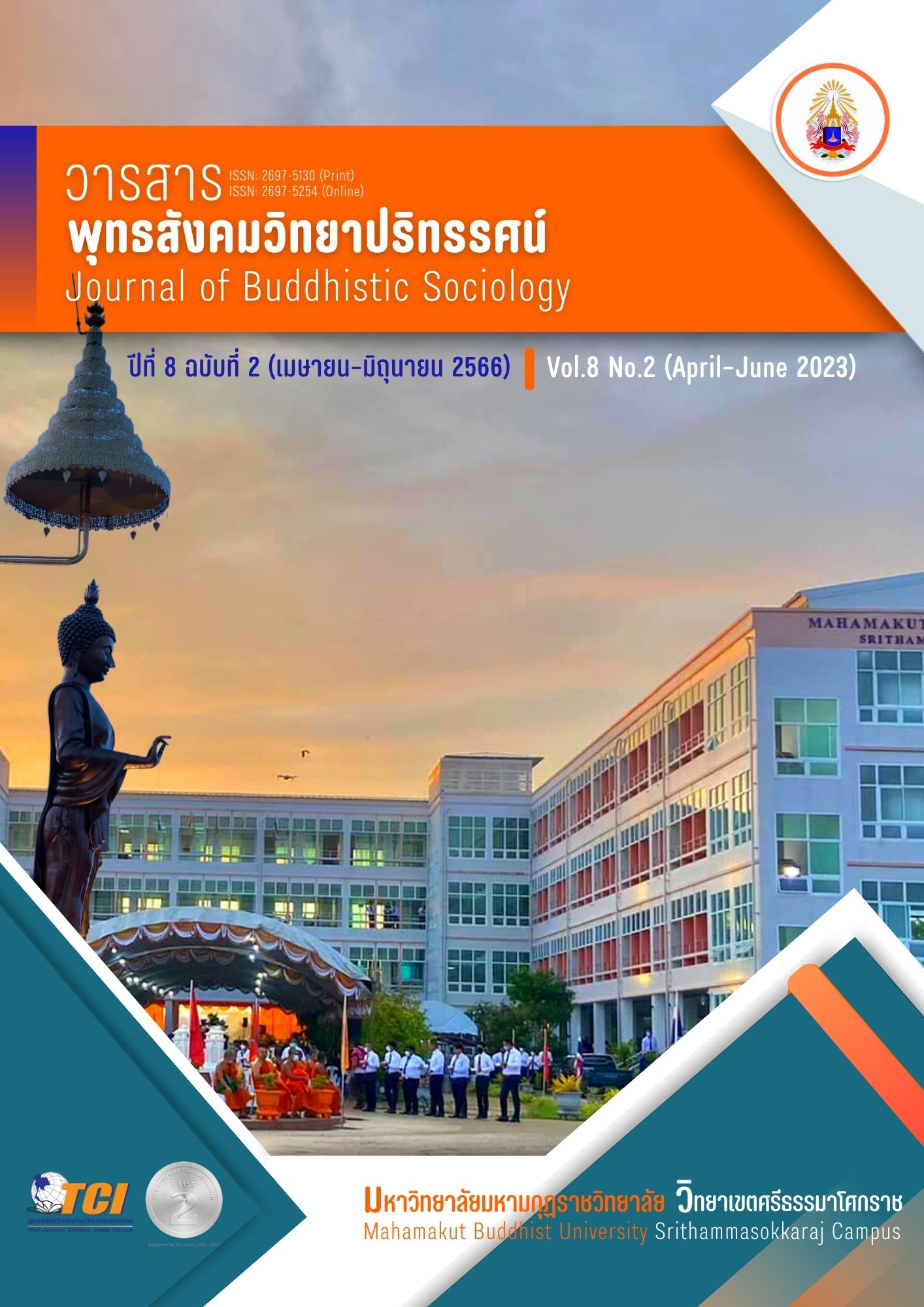THE ROLE OF THAI TEACHERS AND DIGITAL TECHNOLOGY FOR EDUCATION MANAGEMENT
Main Article Content
Abstract
Digital technology is an invention created by humans. It aims to help in various work, both business and education. When technology plays a huge role in learning management for a new generation, teachers need to study more digital technology to help in learning management effectively for learners, especially using technology. Teachers must build credibility for students to search for accurate and non-deceptive resources. Also, the teachers are creators and inventors in creatively producing various types of media. Teachers facilitate learners and develop themselves to keep learning technology. In Thailand, these technologies have already been implemented, such as the Smart classroom system or the intelligent classroom. Many sectors think that it is the most systematic learning management in the classroom and should best meet the achievement of learning management of Thai children in the new era. Thus, teachers have a vital part in being role models to guide students in various fields, whether they are the ones who advise students to find reliable resources or facilitate the use of technology media. Teachers need to keep developing themselves with modern technology to access and understand the technology. They can be used to integrate the application appropriately, including integrating and applying to the teaching and learning appropriately and correctly for the learners.
Article Details

This work is licensed under a Creative Commons Attribution-NonCommercial-NoDerivatives 4.0 International License.
References
กระทรวงศึกษาธิการ. (17 มกราคม 2566). พิธีมอบรางวัลคุรุสดุดี เชิดชูเกียรติครูไทย “พลังครูคือหัวใจของการพลิกโฉมคุณภาพการศึกษา". เรียกใช้เมื่อ 19 มกราคม 2566 จาก https://www.moe.go.th
เขมจิรา คำหงษา และคณะ. (2566). บทบาทครูสังคมศึกษากับการเรียนรู้เชิงรุกในศตวรรษที่ 21. วารสารพุทธสังคมวิทยาปริทรรศน์, 8(1), 188-203.
นวรัตน์ รามสูต. (2564). ครูไทยกับ AI ในสนามการศึกษาเพื่อสร้างคนสู่ศตวรรษที่ 21. เรียกใช้เมื่อ 17 มกราคม 2566 จาก https: //elibrary. ksp.or.th.
พิศวาส ปทุมุต์ตรังสี. (2562). เรียนรู้การใช้ชีวิตในยุคสมัยเอไอ. วารสารความร่วมมือกับต่างประเทศ, 1(1), 37-38.
ราณี จีนสุทธิ์ และหทัยภัทร จีนสุทธิ์. (2564). แนวทางการพัฒนาครูวิถีใหม่ฉลาดรู้เท่าทันดิจิทัล. วารสารคุรุสภาวิทยาจารย์, 13(14-15), 4-13.
วลัยวัชร ชัยบุตร. (2561). การรณรงค์สื่อผ่านการศึกษาทางไกล. วารสารเทคโนโลยีและสื่อสารการศึกษา, 13(14-15), 4-13.
ศักดิ์ชัย ไชยรักษ์ และปณิตา วรรณพิรุณ. (2563). เทคโนโลยีทางปัญญาเพื่อการศึกษาอัจฉริยะ. วารสารปัญญาภิวัฒน์, 12(3), 315-328.
สพป. เพชรบูรณ์ เขต 3. (2563). AI ด้านการศึกษา. เรียกใช้เมื่อ 5 ธันวาคม 2565 จาก https://sites.google.com
สำนักงานพัฒนารัฐบาลดิจิทัล (องค์การมหาชน). (2562). AI เทคโนโลยีปัญญาประดิษฐ์สำหรับการบริหารงานและการบริการภาครัฐ. กรุงเทพมหานคร: ส.พิจิตรการพิมพ์.
สุนันท์ สีพาย. (2562). บทบาทของครูไทยในการศึกษา 4.0. วารสารการวัดผลการศึกษา มหาวิทยาลัยมหาสารคาม, 25(2), 3-14.
DevBun. (2560). Internet of Things. เรียกใช้เมื่อ 24 มกราคม 2566 จาก https://blog.sogoodweb.com
learn Education. (2563). AIกับการศึกษาในอนาคต. เรียกใช้เมื่อ 5 มกราคม 2566 จาก https://www.learneducation.co.th/ai-กับการศึกษา-ในอนาคต/
Plook Teacher. (8 ตุลาคม 2562). AI กับการส่งเสริมการศึกษา. เรียกใช้เมื่อ 30 มกราคม 2566 จาก https://www.trueplookpanya.com./dhamma/content/75968


